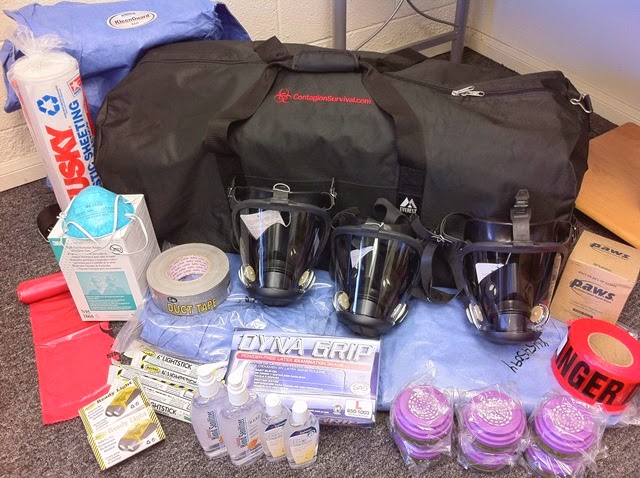Signs and Symptoms of Ebola
Ebola causes bleeding inside and outside of the body. As it spreads through a body, it begins to destroy the immune system and internal organs, and causes blood-clotting cells to drop, which leads to uncontrollable bleeding. The most common symptoms of Ebola are:
-High Fever
-Headache
-Joint and Muscle Aches
-Sore Throat
-Weakness
-Stomach Pain
-Lack of Appetite
These symptoms can show anywhere from 2 to 21 days after infection. Having such a long incubation time is one of the ways that it is able to spread so fast across large distances, as someone not knowing that they are infected could easily spread the infection while traveling. It is very difficult to determine if a person has Ebola from these symptoms alone, and doctors will usually test for other diseases first, like cholera or malaria.
One good thing to be aware of is that Ebola is not as contagious as more common viruses like colds, influenza, or measles. Additionally, you cannot contract Ebola from air, water, or food, and a person who has Ebola but has no symptoms can't spread the virus.
Ebola can spread through skin contact, or by contact with bodily fluids, and this can happen from either humans or animals.
Treatment for Ebola
Currently, there is no known cure for Ebola. The current treatment includes an experimental serum that destroys infected cells. The following is also a list of common ways doctors help manage Ebola symptoms:
-Fluids and Electrolytes
-Oxygen
-Blood Pressure Medication
-Blood Transfusions
-Treatment for Other Infections
Ebola Prevention Tips
With no known cure, and with a 90% fatality rate, the best way to survive an Ebola infection is to prevent yourself from ever contracting it.
The most powerful prevention tip is personal hygiene. There really is no better way to protect you, your family, and your pets. Wash your hands regularly, and before meals, and do not always trust the personal cleanliness of other people. I have seen well dressed and successful lawyers skip washing their hands after using the bathroom, and a drum circle hippy using hand sanitizer and refusing others the chance to use his drums. The point is that you never know.
A simple thing you can do to improve your hygiene habits, is to by a few bottles of hand sanitizer, and spread them out throughout your house, car, and work. I carry some with me in my car and at work. Prior to and after meeting with my clients, I squirt a little in my hands and continue on with my day. I also like to use it after encountering well used surfaces in public places, like gas station card machines, store and restaurant counters, and gas pumps.
Another simple thing you can do to better protect your home, is to regularly clean the various surfaces throughout your home with proper cleaning supplies. You also want to avoid using old sponges and rags.
Now if you are in a situation where you are more likely to come into contact or close proximity to others infected with Ebola, then medical professionals recommend that, first, you do not travel to areas where it can be found. But, again, if you are unable to avoid being in close proximity to those infected with Ebola, then you should make sure that you are wearing masks, gloves, and goggles whenever you are around people or animals who may have Ebola.
Stay Prepared, stay safe!





No comments:
Post a Comment